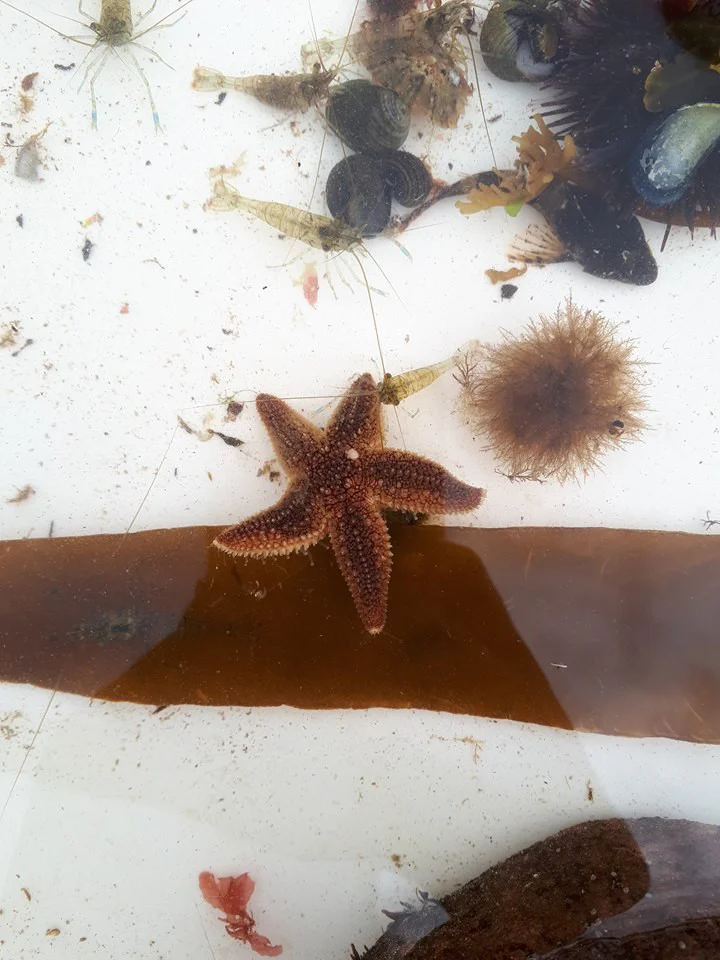Marine Biology: A Fresher Perspective
Shawn Rykaczewski
With fresher’s week coming to an end, many students are trading their party hats for textbooks. Our editor, Shawn, came across a group of first-year marine biology students relaxing in a campus square at the University of Essex and decided to get a rare glimpse into the mind of a fresher. What made these innocent young minds decide to put themselves through three years of marine science? Keep reading to find out…
Photo: Shawn Rykaczewski
So, what made these freshers choose to study marine biology?
Russell, 18, from Cambridgeshire, found his passion when he began scuba diving at the age of 10. “On a dive in Egypt, I saw my first sea turtle and I knew at that moment that I wanted to become a marine biologist - and immediately began to research how to become one.” While some student’s fascination began with hands-on experience, some didn’t find their calling until sometime later. Jane-Marie, 18, from Mundon, says her interest started when her mum brought her rockpooling. “I didn’t view it as a science lesson back then, I think I was too excited about looking for snails and fish. Rockpooling helped get me interested in the ocean, but the real credit goes to the documentary, Blue Planet for inspiring me to want to make a difference” she said. Neta, 21, of London had a similar story to tell. “When I was younger, I wanted to be a dolphin trainer, but after seeing The Cove [a documentary about dolphin hunting in Japan]. I thought there has to be something more I could do to help protect them.”
What do they believe is the greatest threat to the oceans?
The students rated climate change and plastic pollution as the two most significant threats to the ocean. Neta mentioned she fears most for animals who ingest plastics. “Many of these macroplastics can cause intestinal blockages which could potentially kill wildlife.” While Jane agreed, she mentions “I definitely think plastics are a huge issue, but it's being focused on so much that climate change seems to be taking a back seat, and that is worrying.” Russell added, “I don’t think that humanity is fully aware of the impact we have on the ocean. I think if people see the damage we’re doing first hand that they’ll want to change the situation.” The three of them agreed that education is the best weapon in the fight to save the ocean.
And what do they plan to do with their bachelor’s degree once they’ve graduated?
Jane said she’d be interested in teaching children about the ocean. “Teaching young children about the threats our oceans are under is very important. Outreach at a young age could help them make more environmentally friendly choices as they grow up.” After finishing her undergraduate degree, Neta is considering applying to veterinary schools. “I think it could help me aid in research with marine mammals.”, She said. Russell, on the other hand, is interested in working with corals, he says “I’d love to do research on preserving coral reefs. I remember visiting a dive site in 2013 and again in 2018, and the destruction was incredible. It was hard to believe it was even the same reef, everything was bleached. It was heartbreaking really, and that motivates me to make a difference.”
Marine biology is a small, tight-knit community, so we’d like to welcome all the freshers to the family. You have a fun and exciting time ahead of you, enjoy it while you can, because it will fly by before you can say humuhumunukunukuapuaa. If at any point you find yourself doubting your abilities and thinking about discontinuing your studies, remember what motivated you on this path. You can do this, good luck.

